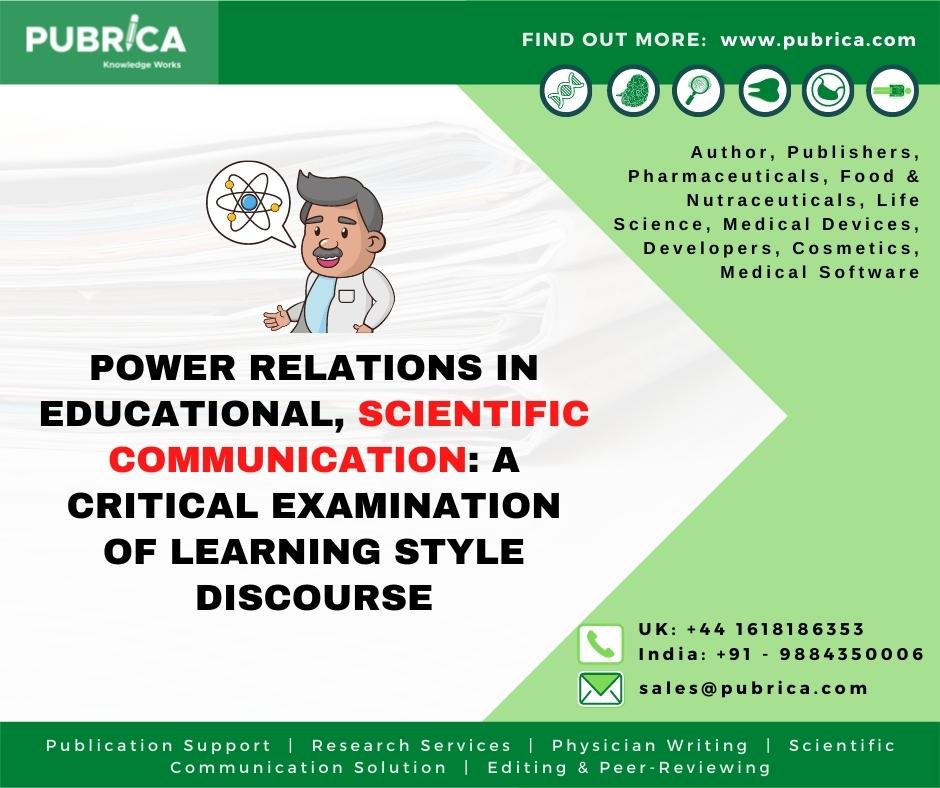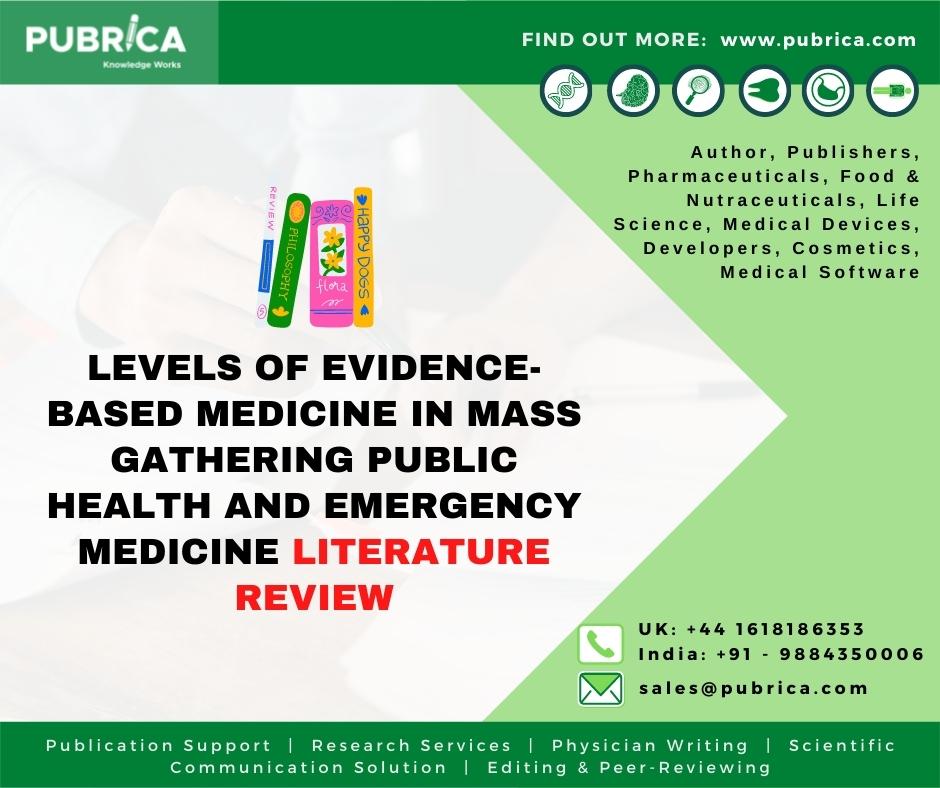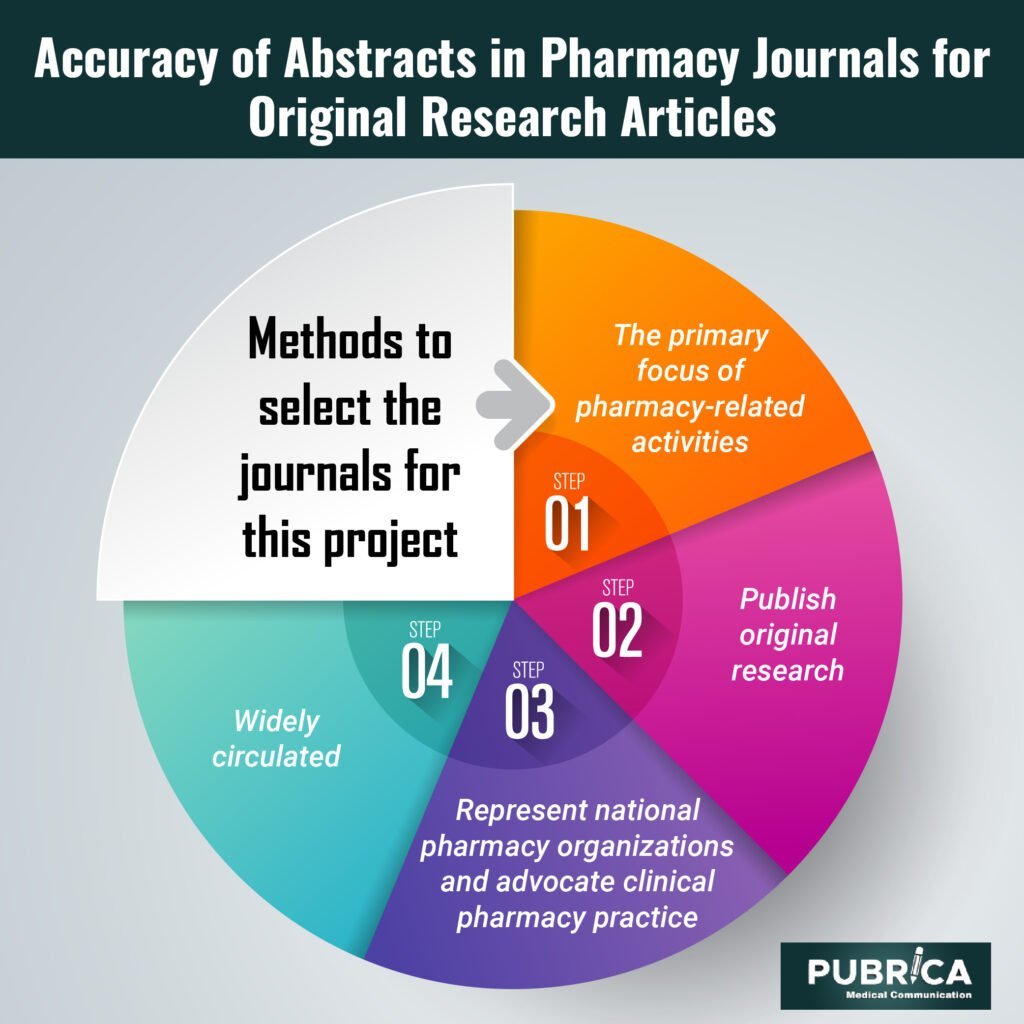
Power relations in educational, scientific communication: a critical examination of learning style discourse
February 9, 2022
Levels of evidence-based medicine in mass gathering public health and emergency medicine literature review
February 18, 2022In brief
Although original research publications are widely available, the accuracy of abstracts describing them is critical, as readers of biomedical literature may not have access to the full-text item. Previous studies have shown differences between published original research abstracts and the full-text paper. An omission, defined as data in the abstract that was not found in writing an original research article, was one of the outcome measures. Furthermore, abstracts were deemed deficient if they contained an omission, inaccurate factual (i.e., quantitative and qualitative) information presented in the abstract that differed from the evidence contained in the text, an inconsistency in following the respective journal’s “Instructions for Authors,” or a discrepancy between the placement of text in the manuscript and a structured abstract. This research shows that abstracts for original research papers published in pharmacy-specific publications must be improved. Authors and peer reviewers should carefully examine the contents of the abstract to verify that it correctly describes the full-text article.
Introduction
Healthcare practitioners continuously search the literature to provide supporting evidence for decisions and justification for patient-care actions. Multiple citations may be located even after conducting literature searches that incorporate appropriate search techniques. At this point, the searcher must review the information in a time-efficient manner and select the most relevant articles. Many users will read the article abstract to obtain a quick overview and determine whether the entire article should be read. The abstract of an original research manuscript writing article (e.g., clinical trial) published in the biomedical literature is considered a synopsis of the essential principles of the study. The background, purpose, basic methodology, key results, and a general conclusion should be presented within the abstract. Furthermore, specific data on essential aspects of the study and statistical significance should be provided.
Another component of an informative abstract is the presentation of unbiased information. Abstracts are frequently read since these are provided by indexing/abstracting services and are placed at the beginning of the articles. The abundance of published materials competing with the finite amount of time available to stay current with the literature may force many practitioners to resort to reading only the article abstract. Thus, the accuracy of an abstract of the original research paper is imperative since biomedical literature readers may not evaluate the entire article or have access to the full-text article (although decisions should not be made based upon only the abstract). Most abstracts are restricted to a word limit, usually < 500 words.
One study reported that 68% of original research abstracts evaluated in one leading medical journal contained discrepancies (i.e., inconsistencies and omissions) between the abstract and the full-text article. The other study reported that 52 of 400 (13%) original research abstracts evaluated in 8 psychology journals were deficient (i.e., contained an inconsistency or omission between the abstract and full text).

Methods
The abstracts of original research articles published in 6 pharmacy specific journals were evaluated. The following criteria were used to select the journals for this project:
(1) the primary focus of pharmacy-related activities,
(2) publish original research,
(3) widely circulated, and
(4) represent national pharmacy organizations and advocate clinical pharmacy practice.
Each abstract also was evaluated for consistency with “Instructions for Authors” specific for each journal and assessed for placement of the text within the body of structured abstracts consistent with the order in the scientific original research article. After each abstract was evaluated, it was classified as deficient if any omission, quantitative and qualitative inaccuracy, inconsistency in following the “Instructions for Authors” for the respective journal, or discrepancy between the placement of information in the full-text article a structured abstract occurred.
Summary
The results of this study document that omissions and discrepancies are present in abstracts for original research articles published in the selected pharmacy journals. Readers of the biomedical and pharmacy literature should be aware of abstract inaccuracies while conducting literature searches and reading research article abstracts. In addition, educators need to emphasize the importance of reading the full-text article in the learning process. Furthermore, both authors and peer reviewers should scrutinize the abstract to ensure that data in the abstract accurately represent the article’s content. Also, revision of the “Instructions for Authors,” including more specific guidelines addressing these issues, may present a possible solution for discrepancies found in abstracts.
About Pubrica
Pubrica has worked as a medical writer in the past. Clinical Research, Pharmacology, Public Health, Regulatory Writing, Clinical Report Forms (Crf), Biostatistics, Psychology, Life Science, Dentistry, Radiology, Dermatology, Diabetology, Gynecology, Cardiology, Biochemistry, Forensics, Surgery, Neurology, Psychiatry, Genomics, Medical Device, Pharmaceutical, Nutraceutical, Fmcg Companies, Hospitals, Universities, Pubrica’s team of medical professionals offer unique medical writing
References
- Ward LG, Kendrach MG, Price SO. Accuracy of Abstracts for Original Research Articles in Pharmacy Journals. Annals of Pharmacotherapy. 2004;38(7-8):1173-1177. doi:10.1345/aph.1D416
- Harris AH, Standard S, Brunning JL, Casey SL, Goldberg JH, Oliver L, et al. The accuracy of abstracts in psychology journals. J Psychol 2002; 136:141-8.
- Bhatt, Arun. “Advice to authors for avoiding flaws in preparation of original research manuscripts.” Perspectives in Clinical Research 12.4 (2021): 229.
